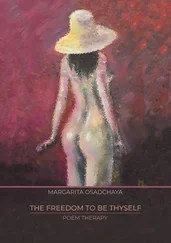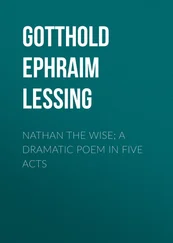Wainamoinen, old and truthful,
Finds at last the wished-for ransom,
Lapland's young and fairest daughter,
Sister dear of Youkahainen;
Happy he, that he has won him,
In his age a beauteous maiden,
Bride of his to be forever,
Pride and joy of Kalevala.
Now the happy Wainamoinen,
Sits upon the rock of gladness,
Joyful on the rock of music,
Sings a little, sings and ceases,
Sings again, and sings a third time,
Thus to break the spell of magic,
Thus to lessen the enchantment,
Thus the potent charm to banish.
As the magic spell is broken,
Youkahainen, sad, but wiser,
Drags his feet from out the quicksand,
Lifts his beard from out the water,
From the rocks leads forth his courser,
Brings his sledge back from the rushes,
Calls his whip back from the ocean,
Sets his golden sledge in order,
Throws himself upon the cross-bench,
Snaps his whip and hies him homeward,
Hastens homeward, heavy-hearted,
Sad indeed to meet his mother,
Aino's mother, gray and aged.
Careless thus be hastens homeward,
Nears his home with noise and bustle,
Reckless drives against the pent-house,
Breaks the shafts against the portals,
Breaks his handsome sledge in pieces.
Then his mother, quickly guessing,
Would have chided him for rashness,
But the father interrupted:
"Wherefore dost thou break thy snow-sledge,
Wherefore dash thy thills in fragments,
Wherefore comest home so strangely,
Why this rude and wild behavior?"
Now alas! poor Youkahainen,
Cap awry upon his forehead,
Falls to weeping, broken-hearted,
Head depressed and mind dejected,
Eyes and lips expressing sadness,
Answers not his anxious father.
Then the mother quickly asked him,
Sought to find his cause for sorrow:
"Tell me, first-born, why thou weepest,
Why thou weepest, heavy-hearted,
Why thy mind is so dejected,
Why thine eyes express such sadness."
Youkahainen then made answer:
"Golden mother, ever faithful,
Cause there is to me sufficient,
Cause enough in what has happened,
Bitter cause for this my sorrow,
Cause for bitter tears and murmurs:
All my days will pass unhappy,
Since, O mother of my being,
I have promised beauteous Aino,
Aino, thy beloved daughter,
Aino, my devoted sister,
To decrepit Wainamoinen,
Bride to be to him forever,
Roof above him, prop beneath him,
Fair companion at his fire-side."
Joyful then arose the mother,
Clapped her hands in glee together,
Thus addressing Youkahainen:
"Weep no more, my son beloved,
Thou hast naught to cause thy weeping,
Hast no reason for thy sorrow,
Often I this hope have cherished;
Many years have I been praying
That this mighty bard and hero,
Wise and valiant Wainamoinen,
Spouse should be to beauteous Aino,
Son-in-law to me, her mother."
But the fair and lovely maiden,
Sister dear of Youkahainen,
Straightway fell to bitter weeping,
On the threshold wept and lingered,
Wept all day and all the night long,
Wept a second, then a third day,
Wept because a bitter sorrow
On her youthful heart had fallen.
Then the gray-haired mother asked her:
"Why this weeping, lovely Aino?
Thou hast found a noble suitor,
Thou wilt rule his spacious dwelling,
At his window sit and rest thee,
Rinse betimes his golden platters,
Walk a queen within his dwelling."
Thus replied the tearful Aino:
"Mother dear, and all-forgiving,
Cause enough for this my sorrow,
Cause enough for bitter weeping:
I must loose my sunny tresses,
Tresses beautiful and golden,
Cannot deck my hair with jewels,
Cannot bind my head with ribbons,
All to be hereafter hidden
Underneath the linen bonnet
That the wife. must wear forever;
Weep at morning, weep at evening,
Weep alas! for waning beauty,
Childhood vanished, youth departed,
Silver sunshine, golden moonlight,
Hope and pleasure of my childhood,
Taken from me now forever,
And so soon to be forgotten
At the tool-bench of my brother,
At the window of my sister,
In the cottage of my father."
Spake again the gray-haired mother
To her wailing daughter Aino:
"Cease thy sorrow, foolish maiden,
By thy tears thou art ungrateful,
Reason none for thy repining,
Not the slightest cause for weeping;
Everywhere the silver sunshine
Falls as bright on other households;
Not alone the moonlight glimmers
Through thy father's open windows,
On the work-bench of thy brother;
Flowers bloom in every meadow,
Berries grow on every mountain;
Thou canst go thyself and find them,
All the day long go and find them;
Not alone thy brother's meadows
Grow the beauteous vines and flowers;
Not alone thy father's mountains
Yield the ripe, nutritious berries;
Flowers bloom in other meadows,
Berries grow on other mountains,
There as here, my lovely Aino."
Rune IV. The Fate of Aino.
WHEN the night had passed, the maiden,
Sister fair of Youkahainen,
Hastened early to the forest,
Birchen shoots for brooms to gather,
Went to gather birchen tassels;
Bound a bundle for her father,
Bound a birch-broom for her mother,
Silken tassels for her sister.
Straightway then she hastened homeward,
By a foot-path left the forest;
As she neared the woodland border,
Lo! the ancient Wainamoinen,
Quickly spying out the maiden,
As she left the birchen woodland,
Trimly dressed in costly raiment,
And the minstrel thus addressed her:
"Aino, beauty of the Northland,
Wear not, lovely maid, for others,
Only wear for me, sweet maiden,
Golden cross upon thy bosom,
Shining pearls upon thy shoulders;
Bind for me thine auburn tresses,
Wear for me thy golden braidlets."
Thus the maiden quickly answered:
"Not for thee and not for others,
Hang I from my neck the crosslet,
Deck my hair with silken ribbons;
Need no more the many trinkets
Brought to me by ship or shallop;
Sooner wear the simplest raiment,
Feed upon the barley bread-crust,
Dwell forever with my mother
In the cabin with my father."
Then she threw the gold cross from her,
Tore the jewels from her fingers,
Quickly loosed her shining necklace,
Quick untied her silken ribbons,
Cast them all away indignant
Into forest ferns and flowers.
Thereupon the maiden, Aino,
Hastened to her mother's cottage.
At the window sat her father
Whittling on an oaken ax-helve:
"Wherefore weepest, beauteous Aino,
Aino, my beloved daughter?
"Cause enough for weeping, father,
Good the reasons for my mourning,
This, the reason for my weeping,
This, the cause of all my sorrow:
From my breast I tore the crosslet,
From my belt, the clasp of copper,
From my waist, the belt of silver,
Golden was my pretty crosslet."
Near the door-way sat her brother,
Carving out a birchen ox-bow:
"Why art weeping, lovely Aino,
Aino, my devoted sister?"
"Cause enough for weeping, brother,
Good the reasons for my mourning
Therefore come I as thou seest,
Rings no longer on my fingers,
On my neck no pretty necklace;
Golden were the rings thou gavest,
And the necklace, pearls and silver!"
On the threshold sat her sister,
Weaving her a golden girdle:
Читать дальше












